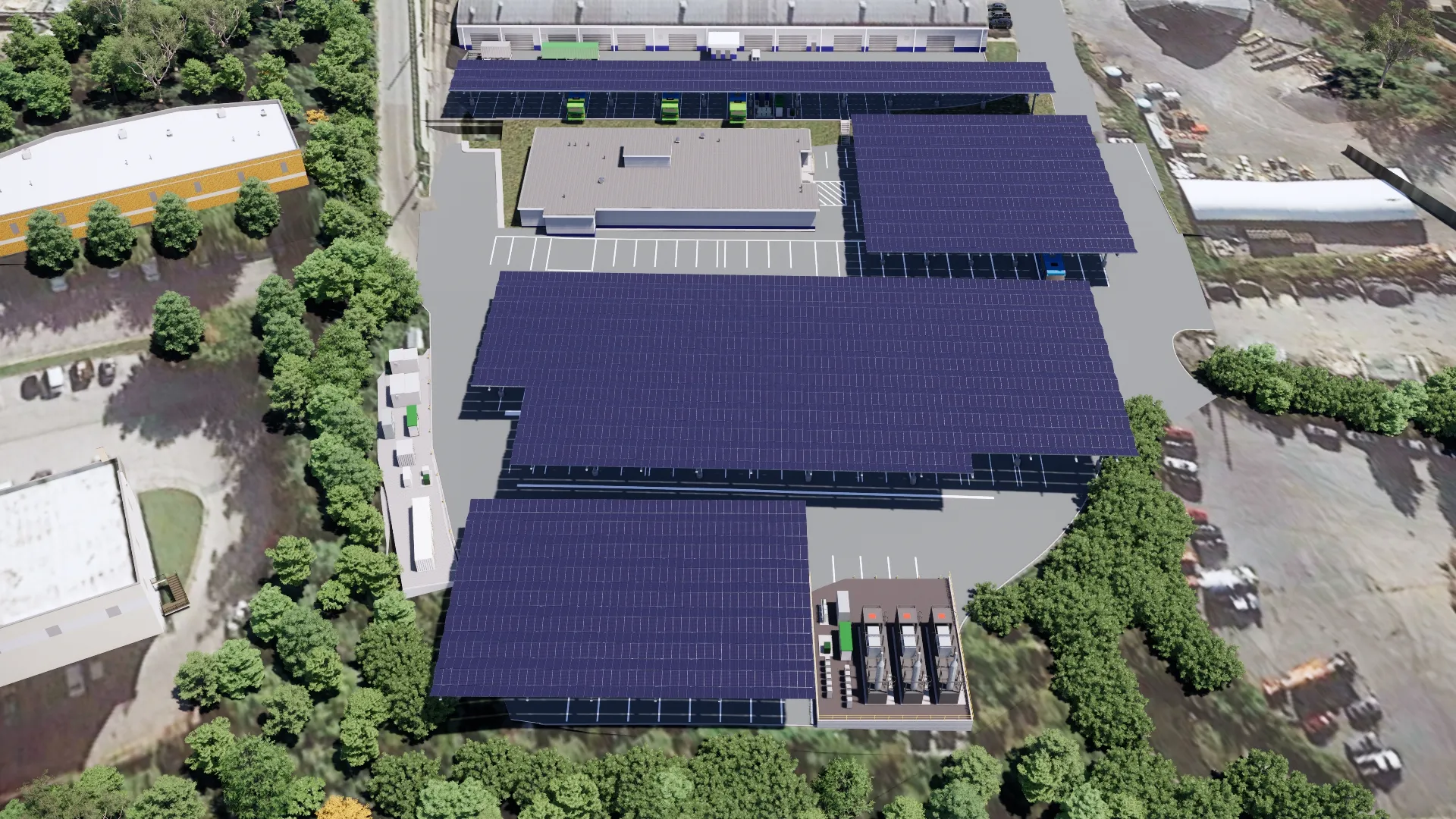The company was awarded the contract by Southern California’s South Coast Air Quality Management District (SCAQMD) with the objectives of eliminating local emissions, reducing the consumption of fossil fuels and cutting the operating costs of trucks. The two ports are seeking an emission-free solution, Zero Emission I-710 Project, for a section of Highway 710, which carries a high proportion of shuttle truck traffic. The 30 kilometre route links the two ports and the railroad trans-shipment centres inland.
As part of the eHighway system, two lanes of Alameda Street in the city of Carson, California, are being electrified via a catenary system. Electric trucks equipped with hybrid drives and smart current collectors will be supplied with electricity from catenaries, providing local zero-emission operation.
In conjunction with vehicle manufacturer Mack, a member of the Volvo Group, and local truck conversion specialists, Siemens is developing up to four demonstration vehicles. The smart current collectors permit overtaking manoeuvres and automatic hook-up and disconnection at speeds up to 90 km/h. On normal roads without overhead lines the vehicles make use of a hybrid system which can be powered by diesel, compressed natural gas or via a battery.
The test results should be available in the summer of 2016, and will indicate the suitability of the systems for future commercial use.
“Our highway technology eliminates local emissions and is an economically attractive solution for freight transport on shuttle truck routes,” says Matthias Schlelein, head of Siemens Division Mobility and Logistics in the USA. “Long Beach and Los Angeles, the two US ports generating the most traffic, can benefit hugely from our technology."
”This project will help us evaluate the feasibility of a zero-emission cargo movement system using overhead catenaries,” said Barry Wallerstein, SCAQMD’s executive officer. “Southern California’s air pollution is so severe that it needs, among other strategies, zero- and near-zero emission goods movement technologies to achieve clean air standards.”
“I’m happy to see the Los Angeles region leading the way in bringing cutting edge technology to an increasingly important economic centre,” said Los Angeles Councilman Joe Buscaino. “The eHighway project is a great example of how electricity can help power the next generation of transportation systems while also providing cleaner air for our citizens in the process.”
Siemens tests eHighway system
Siemens, in conjunction with Volvo, is to trial an eHighway system on a two-mile stretch of highway in California in the vicinity of the ports of Los Angeles and Long Beach. The company was awarded the contract by Southern California’s South Coast Air Quality Management District (SCAQMD) with the objectives of eliminating local emissions, reducing the consumption of fossil fuels and cutting the operating costs of trucks. The two ports are seeking an emission-free solution, Zero Emission I-710 Project, for a
August 7, 2014
Read time: 3 mins







